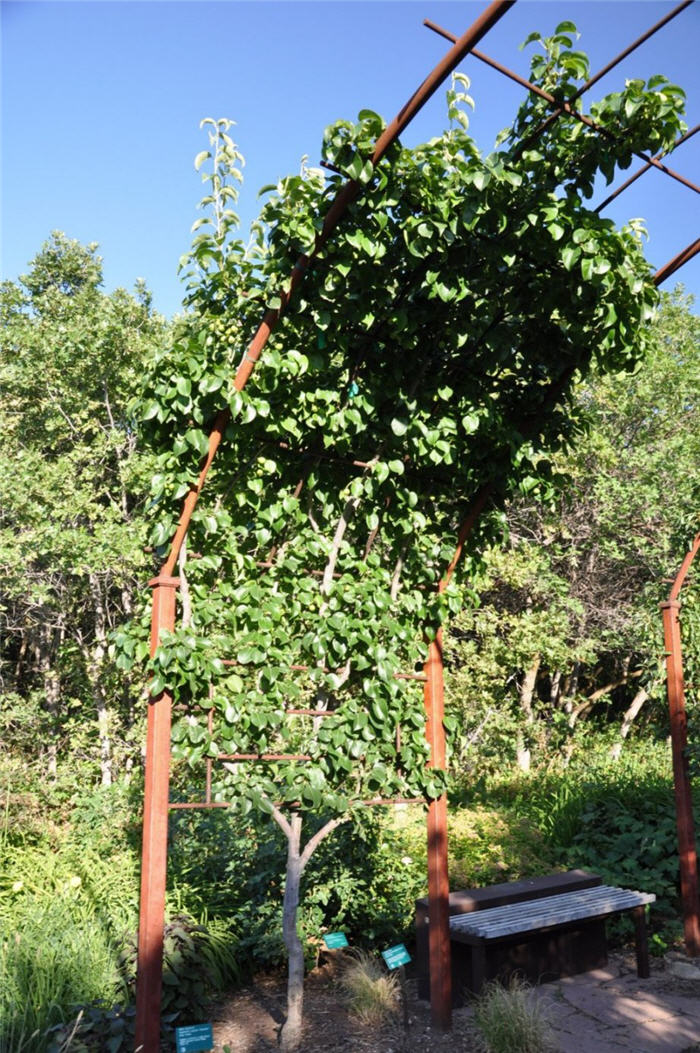| Botanical Name: Pyrus calleryana | |
| Common Name: Flowering Pear |

-
Anatomy
-
Culture
-
Design
Plant Type
Tree
Height Range
25-40'
Flower Color
White
Flower Season
Spring
Leaf Color
Dark Green
Bark Color
Brown
Fruit Color
Black
Fruit Season
Summer, Fall
Sun
Full
Water
Medium
Growth Rate
Moderate
Soil Type
Sandy, Clay, Loam
Soil Condition
Average, Rich, Well-drained, Dry
Soil pH
Neutral, Basic
Adverse Factors
n/a
Design Styles
English Cottage, Formal, Mediterranean, Ranch, Spanish, Woodland
Accenting Features
Fall Color, Showy Flowers, Specimen
Seasonal Interest
Spring, Fall
Location Uses
Background, Entry, Shrub Border, Foundation, Patio, Raised Planter, Walls / Fences
Special Uses
Screen, Mass Planting, Shade Tree, Fire Resistant, Small Spaces
Attracts Wildlife
n/a
Information by: Stephanie Duer
Photographer:
Photographer:
-
Description
-
Notes
This is the species of pear known as Flowering Pear, a highly ornamental, nearly ubiquitous deciduous tree favored by contractors, landscape designers, and homeowners. Many cultivars are avaialble in the trade, though they all possess some shared qualities: white spring flower that emerge before the foliage; glossy green foliage that turns red in fall; non-fruiting to small insignificant fruit; and a tolerance for urban conditions.
Grow in well drained soil in full sun. Adaptive to many soil types, including drier soils. Watering can be reduced after establishment. Prune in winter to early spring.